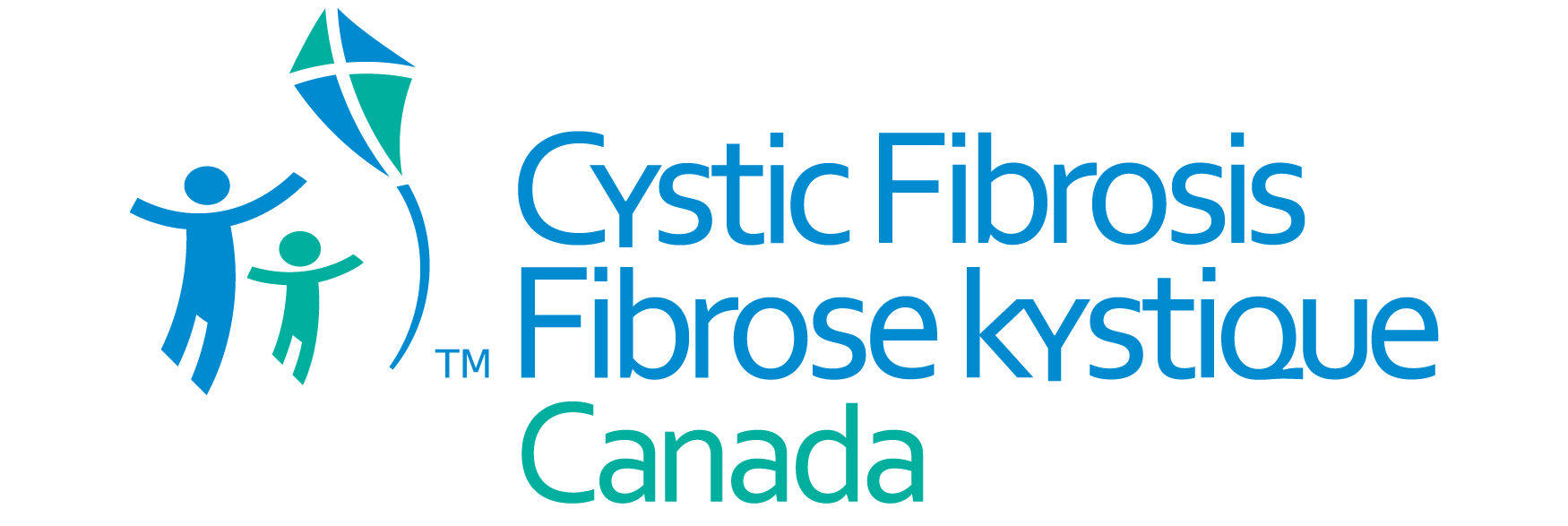Cystic Fibrosis Canada Blog Hub
Canada’s cystic fibrosis community is a vibrant place to be. People living with CF, family members, carers, clinicians, scientists, donors and volunteers contribute enormously to helping people of all ages live without limits. We thank all those who've shared their story and invite you to get to know our community in the blog posts below.
Let us know if you want to share your story.
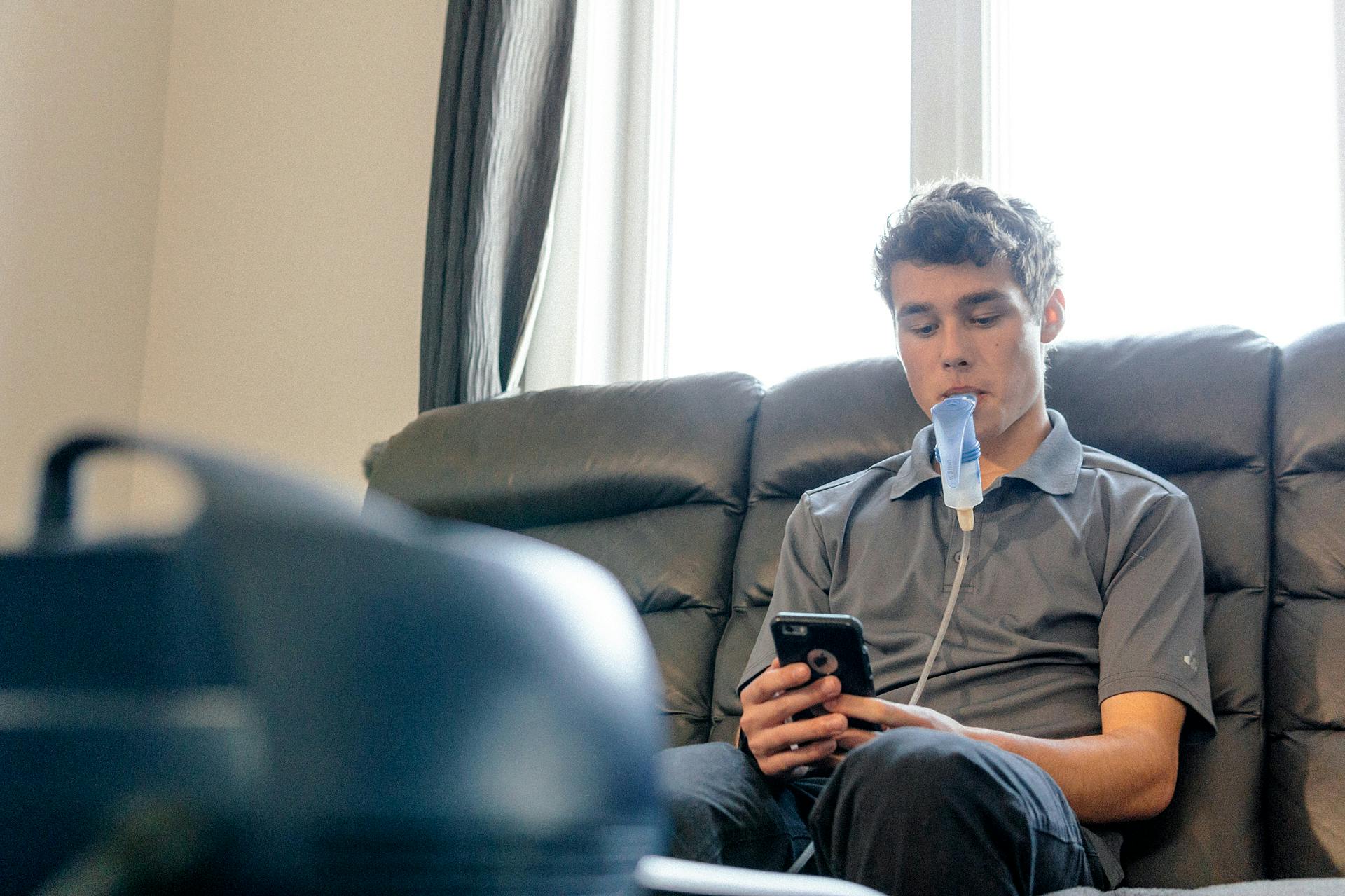
Search & Filter Blog Posts

Building the Future of CF Care: Dr. Rebecca O’Leary’s Clinical Fellowship
Cystic Fibrosis Canada is proud to celebrate Dr. Rebecca O’Leary, the recipient of the 2025 Clinical Fellowship award – an opportunity funded by Cystic Fibrosis Canada that supports clinicians in pursuing advanced training in cystic fibrosis (CF) care.

Home Hardware Charity Golf Tournament Raises $181,855 for Cystic Fibrosis Canada
Home Hardware’s 2025 charity golf tournament raised $181,855 to support Cystic Fibrosis Canada’s research, care, and advocacy for Canadians living with CF.

Paula Barrett Receives CF Canada’s 2025 Multidisciplinary Award for Nursing
Cystic Fibrosis Canada proudly recognizes Paula Barrett with the Multidisciplinary Award for Nursing, honouring her remarkable 37‑year career dedicated to improving the lives of people living with cystic fibrosis.

Powered by Lived Experience: How Elevate Shapes CF Research, Care, and Support
Behind meaningful progress in cystic fibrosis care is the insight of people who live it every day. Through Elevate, members share their lived experience to help guide research, programs, and support across Canada.

Dr. Justine Mathe: The Hidden World of Bacteria
Dr. Justine Mathe is breaking new ground by looking deep inside the lungs of people with cystic fibrosis (CF), specifically those who underwent lung transplantation before highly effective modulator therapy (HEMT) became widely available. By studying these precious, rare lung tissue samples, she hopes to uncover how bacteria interact with lung cells to drive disease progression.

Meet Blythe Owen: 2025 Multidisciplinary Healthcare Award: Physiotherapist Recipient
For more than 20 years, Blythe Owen has been a dedicated physiotherapist at the Hospital for Sick Children (SickKids) in Toronto, helping children with cystic fibrosis (CF) with compassion, expertise, and her commitment to patient-centred care.

Dr. Sarah Wootton: Harnessing Gene Therapy to Stop Infections
With the funding support of Cystic Fibrosis Canada, Dr. Wootton, Associate Professor in the Department of Pathobiology at the University of Guelph, made exciting strides in a gene therapy approach designed to stop one of CF’s most stubborn problems before it starts: lung infections.

Dr. Christina Thornton: Digging into the Mystery of Candida
Dr. Christina Thornton’s research into Candida – a naturally-occurring yeast often dismissed by clinicians as harmless – has led her to challenge decades of assumptions in cystic fibrosis (CF) care. As a Clinician-Scientist at the University of Calgary, she’s leading a research project funded by Cystic Fibrosis Canada exploring how this common fungus might actually be causing trouble for people with CF.

Dr. Amanda Morris’ Groundbreaking Look Inside Sputum
When Dr. Amanda Morris looks at a sputum sample from someone with cystic fibrosis (CF), she doesn’t just see mucus – she sees a map of bacteria. This map of bacteria is a key to better understanding, treating, and potentially predicting lung exacerbations in people with CF.

A Legacy of Care: Louise’s 40-Year Journey with the CF Community
When Louise began her nursing career at Toronto’s Hospital for Sick Children (SickKids) in 1982, she had no idea that cystic fibrosis (CF) would shape both her professional and personal life for decades to come.

Volunteers Make Community
On International Volunteer Day, Cystic Fibrosis Canada celebrates the incredible volunteers who strengthen and support the cystic fibrosis community.

Holding onto Hope: A Newly Diagnosed Family’s Journey with Cystic Fibrosis
When Marie-Joëlle and her partner, Alexis Martel, welcomed their daughter, Lucie, into the world, they never imagined their first year as a family of four would bring such a life-changing diagnosis.
- 1
- 2
- 3
- …
- 11

Building the Future of CF Care: Dr. Rebecca O’Leary’s Clinical Fellowship
Cystic Fibrosis Canada is proud to celebrate Dr. Rebecca O’Leary, the recipient of the 2025 Clinical Fellowship award – an opportunity funded by Cystic Fibrosis Canada that supports clinicians in pursuing advanced training in cystic fibrosis (CF) care.

Home Hardware Charity Golf Tournament Raises $181,855 for Cystic Fibrosis Canada
Home Hardware’s 2025 charity golf tournament raised $181,855 to support Cystic Fibrosis Canada’s research, care, and advocacy for Canadians living with CF.

Paula Barrett Receives CF Canada’s 2025 Multidisciplinary Award for Nursing
Cystic Fibrosis Canada proudly recognizes Paula Barrett with the Multidisciplinary Award for Nursing, honouring her remarkable 37‑year career dedicated to improving the lives of people living with cystic fibrosis.

Powered by Lived Experience: How Elevate Shapes CF Research, Care, and Support
Behind meaningful progress in cystic fibrosis care is the insight of people who live it every day. Through Elevate, members share their lived experience to help guide research, programs, and support across Canada.

Dr. Justine Mathe: The Hidden World of Bacteria
Dr. Justine Mathe is breaking new ground by looking deep inside the lungs of people with cystic fibrosis (CF), specifically those who underwent lung transplantation before highly effective modulator therapy (HEMT) became widely available. By studying these precious, rare lung tissue samples, she hopes to uncover how bacteria interact with lung cells to drive disease progression.

Meet Blythe Owen: 2025 Multidisciplinary Healthcare Award: Physiotherapist Recipient
For more than 20 years, Blythe Owen has been a dedicated physiotherapist at the Hospital for Sick Children (SickKids) in Toronto, helping children with cystic fibrosis (CF) with compassion, expertise, and her commitment to patient-centred care.

Dr. Sarah Wootton: Harnessing Gene Therapy to Stop Infections
With the funding support of Cystic Fibrosis Canada, Dr. Wootton, Associate Professor in the Department of Pathobiology at the University of Guelph, made exciting strides in a gene therapy approach designed to stop one of CF’s most stubborn problems before it starts: lung infections.

Dr. Christina Thornton: Digging into the Mystery of Candida
Dr. Christina Thornton’s research into Candida – a naturally-occurring yeast often dismissed by clinicians as harmless – has led her to challenge decades of assumptions in cystic fibrosis (CF) care. As a Clinician-Scientist at the University of Calgary, she’s leading a research project funded by Cystic Fibrosis Canada exploring how this common fungus might actually be causing trouble for people with CF.

Dr. Amanda Morris’ Groundbreaking Look Inside Sputum
When Dr. Amanda Morris looks at a sputum sample from someone with cystic fibrosis (CF), she doesn’t just see mucus – she sees a map of bacteria. This map of bacteria is a key to better understanding, treating, and potentially predicting lung exacerbations in people with CF.

A Legacy of Care: Louise’s 40-Year Journey with the CF Community
When Louise began her nursing career at Toronto’s Hospital for Sick Children (SickKids) in 1982, she had no idea that cystic fibrosis (CF) would shape both her professional and personal life for decades to come.

Volunteers Make Community
On International Volunteer Day, Cystic Fibrosis Canada celebrates the incredible volunteers who strengthen and support the cystic fibrosis community.

Holding onto Hope: A Newly Diagnosed Family’s Journey with Cystic Fibrosis
When Marie-Joëlle and her partner, Alexis Martel, welcomed their daughter, Lucie, into the world, they never imagined their first year as a family of four would bring such a life-changing diagnosis.

Why We Go Further: Tiffany’s Story
Cystic fibrosis (CF) is a complex disease that requires daily management, from treatments and medications to strict infection prevention. For Tiffany, who was diagnosed at four months old, this reality has shaped much of her life and at times, made her question what her future would look like.

A Legacy of Love: How the Trademan Family is Turning Hope into Action for People Living with CF
CF brings a sense of helplessness that comes from knowing the disease is inherited. Eugene was deeply moved by Coast’s diagnosis and wanted to make a difference for his great-grandson. What began as one man’s determination to help his family has grown into a multi-generational legacy of hope.

Benchmarks and Boardrooms: My Journey from a Park Bench to CF Canada’s Board
From Googling “what is CF?” to serving on the organization's board of directors, Eric Saumure says that CF Canada’s mission isn’t abstract.

Dr. Veronica Campanucci: Unraveling the Link Between Nerve Signals and Gut Symptoms
With the support of Cystic Fibrosis Canada and the Saskatchewan Health Research Foundation, Dr. Campanucci is exploring how nerves in the gut contribute to the digestive symptoms that affect so many people with CF.

Supporting Caregivers of Newly Diagnosed Infants: Insights from the 2024 Survey
Caring for an infant newly diagnosed with cystic fibrosis (CF) is a life-changing experience. To better understand the challenges, supports and needs of CF parents and guardians, Cystic Fibrosis Canada conducted a national survey at the end of 2024 in both English and French.

How Lorna is Breathing Hope into the Future of Cystic Fibrosis
For as long as she can remember, Lorna has lived with cystic fibrosis (CF). Diagnosed at just 24 hours old after being born without signs of life, she has defied the odds time and time again – and continues to do so today.

Dr. Fabrice Jean-Pierre: Uncovering the Invisible Battles in CF Lungs
Dr. Fabrice Jean-Pierre’s research digs into a problem many people with cystic fibrosis (CF) know intimately: chronic lung infections. Even as treatments like Trikafta improve lung function and overall quality of life for many, bacteria like Pseudomonas aeruginosa (PA) continue to linger, evolve, and resist treatment. Over time, PA can cause significant inflammation and tissue damage in the lungs, contributing to a decline in lung health.

Service, Strength, and Family: A Father’s Reflections on Military Life and CF
This Remembrance Day, Colonel Mike Babin shares his story as a cystic fibrosis father and as a member of service, reflecting on what it means to serve, to sacrifice and to stay strong for the ones you love:

Dr. Brad Quon: Investigating Inflammation in the Trikafta Era
Dr. Brad Quon, a Clinician-Scientist at the University of British Columbia, is asking bold, urgent questions amid the game-changing impact of CFTR modulators like Trikafta: Is inflammation still a problem? Who still needs treatment beyond Trikafta? How can we personalize care to meet every patient’s need?

Alyftrek: Your Questions Answered
Alyftrek: Your Questions Answered You might be wondering: What is Alyftrek? If so, you’re in the right place. We’ve answered some of the most common questions about Alyftrek to help you understand the latest on the newest cystic fibrosis (CF) treatment option.

Why I Give Monthly: A CF Canada Team Member’s Perspective
By becoming a monthly donor, you’re helping fund urgent needs in research, advocacy, and care, while also ensuring CF Canada can dream bigger, plan further, and push harder toward the day when no life is limited by cystic fibrosis.

“We’re not just treating lungs – we’re supporting the whole person”
At St. Paul’s Hospital in Vancouver, social worker Pat MacDiarmid has spent nearly two decades walking alongside adults with cystic fibrosis (CF), helping them navigate both the emotional and practical realities of living with a chronic illness.

Celebrating Excellence in CF Nursing: Ena Gaudet
This year, Ena’s dedication has been recognized with Cystic Fibrosis Canada’s 2025 Taylor Nursing Award for Continuing Education, an honour established through the generosity and leadership of Louise Taylor, former CF Clinic Nurse Coordinator at The Hospital for Sick Children in Toronto.

From Clinics to Community: Highlights from the CF Canada Conference
Nearly 200 CF clinicians gathered in Calgary to shape new care guidelines and strengthen collaboration across Canada’s cystic fibrosis community.

Carrying on a Legacy: The Gallivan CF Golf Tournament
For more than four decades, the Gallivan CF Golf Tournament has stood as a shining example of what happens when a community comes together with love, purpose, and determination.

One More Breath: Audrey’s Journey with Cystic Fibrosis and Mental Health
From the outside, 25-year-old Audrey’s life in Sorel-Tracy, Quebec, might seem full of light. But behind the moments of joy is a lifelong battle with cystic fibrosis – one that has tested not only her body, but her mind. Read more and learn how you can help expand mental health resources for people living with CF.
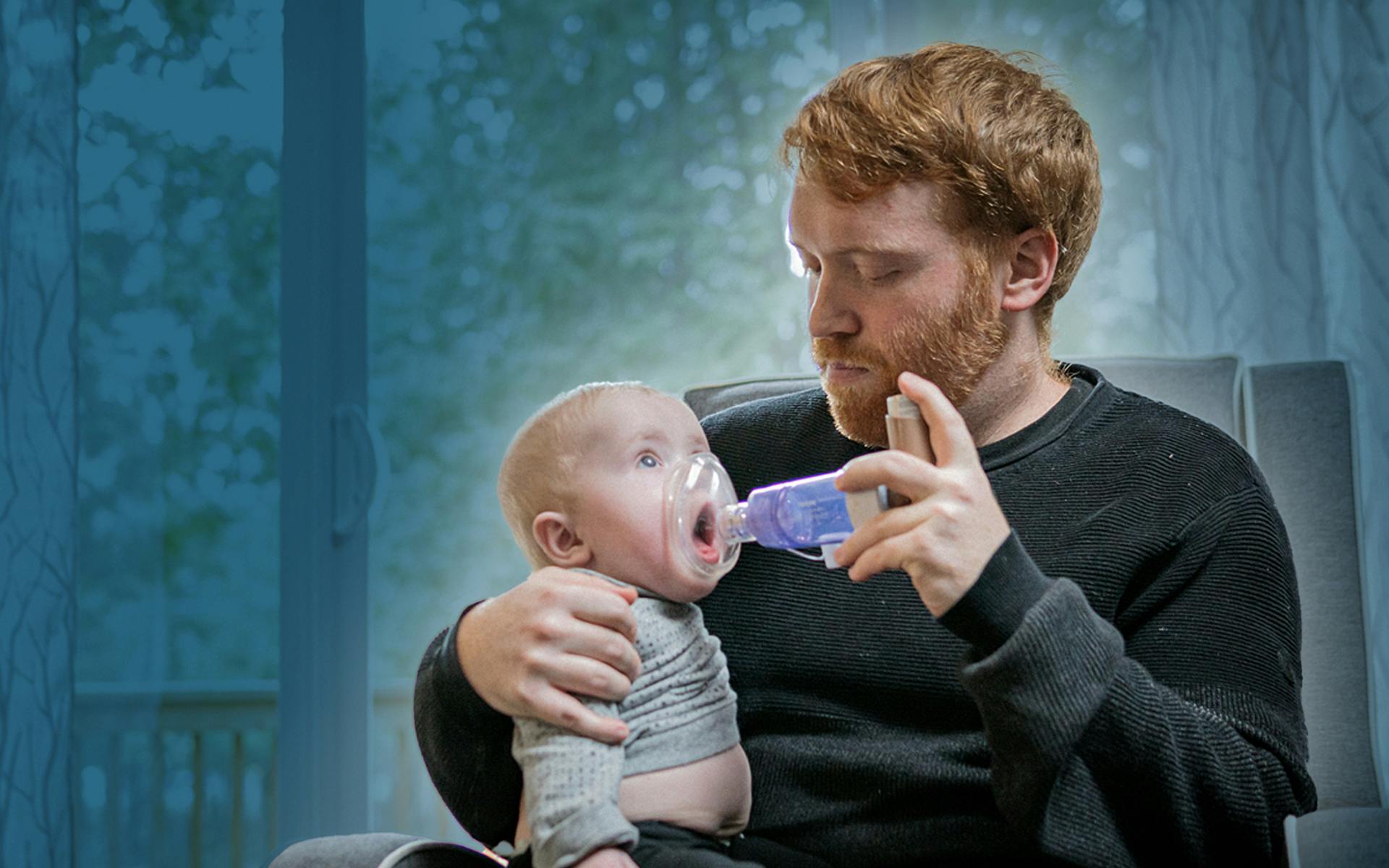
65 Years Strong, But Our Story Is Far From Over
Sixty-five years ago, a group of determined parents refused to accept that cystic fibrosis (CF) was a death sentence for their children. Today, Cystic Fibrosis Canada stands as a testament to what unwavering commitment can achieve.

Pregnancy Outcomes in Women with Cystic Fibrosis: A New Canadian Study
As more women with cystic fibrosis (CF) are choosing to start families, understanding how pregnancy and birth outcomes compare to the general population is becoming increasingly important. At a national level, this topic has been largely unexplored due to very limited data being available. Now, a new research study published in the Journal of Obstetrics and Gynecology Canada (JOGC), helps to fill this gap.

Living with Cystic Fibrosis: Kiley’s Story of Strength, Survival, and Mental Health
Kiley, 21, spends her time journaling and working at a local pub—all while trying to deal with the mental challenges of cystic fibrosis (CF). Read more and learn how you can help expand mental health resources for people living with CF.

Why Access to Trikafta is About More Than Medicine: Lauren’s Story
For the past two years, Lauren has been hospital-free – a milestone she never imagined possible before starting Trikafta. Now in the final year of her teacher education program, Lauren dreams of inspiring students.

Running for a Future Without Limits: The Defibrose 2026 Experience
With the Kenya Experience on the horizon and two determined teenagers at the starting line, the Defibrose team is once again proving that no distance is too far when it comes to fighting for a better future.
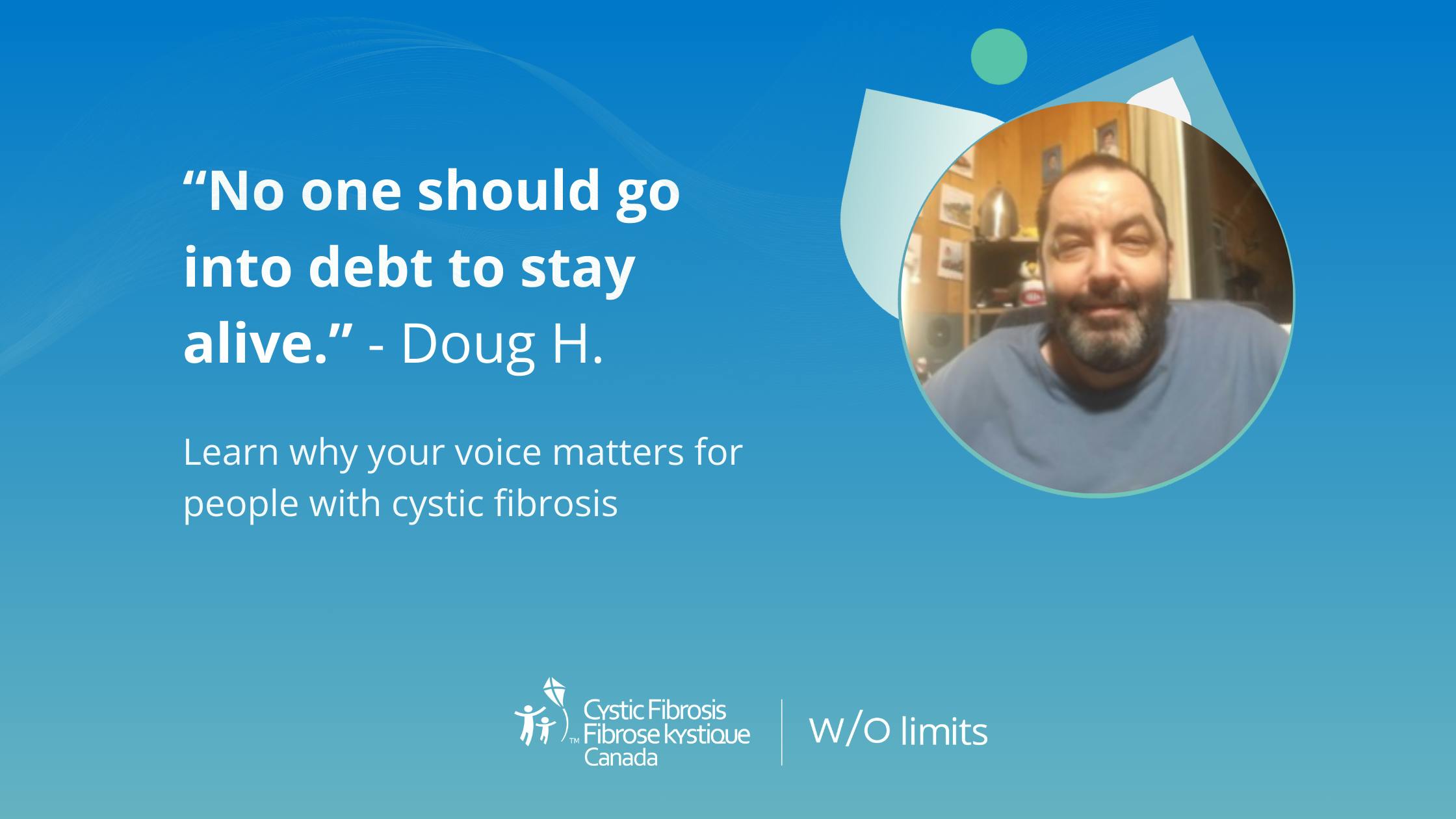
“No one should go into debt to stay alive.” – Why your voice matters for people with Cystic Fibrosis

“I just want to live a full life:” Teresa Weger on Rare Mutations, Resilience, and the Push for Progress
Living with a rare cystic fibrosis mutation and no access to Trikafta, Teresa Weger opens up about the realities of CF, her advocacy work, and why continued research is essential.

Spotlight on CF Research Webinar: recap and Q&A
On June 18th, Cystic Fibrosis Canada hosted the second annual virtual Community Forum, themed, “Spotlight on CF Research”. In case you missed the webinar, we’re recapping what was discussed and sharing the Q&As from our stellar lineup of Canadian cystic fibrosis researchers.

Dr. Dao Nguyen: Fighting Pseudomonas Aeruginosa in the Trikafta Era
Why is Pseudomonas Aeruginosa still showing up in people with CF, even on Trikafta? Dr. Dao Nguyen’s lab is on the case, exploring why this stubborn bacterium sticks around.

Cystic Fibrosis Scholarships
Post-secondary education can be expensive, which is why we gathered some financial support opportunities for Canadians in the CF community seeking higher education.

Facing Off Against CF
While the Oilers chase the Cup, Ryan Nugent-Hopkins champions cystic fibrosis, raising awareness and funds as Face Off with CF’s honourary chair.

Helping to decrease the emotional burden for people in Canada with cystic fibrosis
Discover Cystic Fibrosis Canada's Mental Health Resource Hub—supporting the emotional well-being of people with CF and their caregivers across Canada.
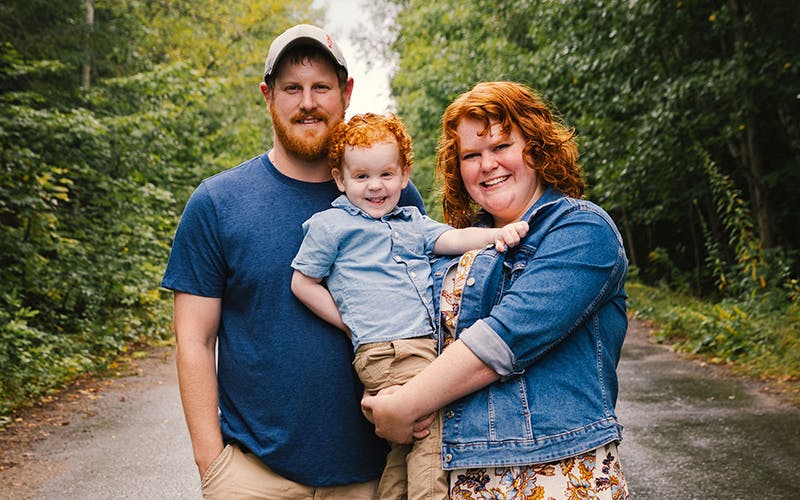
I walk for my son and my sister
Bethany’s son Zachary was diagnosed with CF as a newborn. With support from family and IWK Health, they remain hopeful. Join The Walk to Make Cystic Fibrosis History.

A Lasting Legacy: Transforming the Future for Generations to Come
Cystic Fibrosis Canada is deeply grateful for the generosity of Erik and Birthe Andersen, whose dedication to the cystic fibrosis (CF) community spanned decades.

Improving equitable access to clinical trials in Quebec
Discover how Cystic Fibrosis Canada’s clinical trials network, CF CanACT, is improving access to clinical trials for French-speaking Canadians with CF.

Dr. Jonathan Dennis new unexplored approach to treatment of dangerous bacteria
Dr. Jonathan Dennis researches phage therapy for Burkholderia CF lung infections, funded by Cystic Fibrosis Canada, to help the CF community fight dangerous bacteria.

Unmasking Resistance: Dr. Omar El-Halfawy's Pioneering Approach to Antibiotic Resistance in CF
Dr. Omar El-Halfawy’s research fights antibiotic resistance in CF by improving testing and uncovering new treatments for stubborn lung infections.

James’s story: Candid thoughts on mental health resources
James Fournier shares his story as a father of a young boy with cystic fibrosis and the need for mental health resources for families affected by the disease

We’re building a Future W/O Limits
In 2024, we made strides for Canadians with CF. Donate this holiday season to double your impact and help create a future W/O Limits.

2025 and beyond: a Future W/O Limits
Thanks to your incredible support in 2024, we raised $13,465 during our 48-hour challenge, taking us one step closer to a future W/O Limits for people with CF.

Letter From Kelly
In response to the Globe and Mail article on November 21, 2024, “Cystic fibrosis drug reduces hospital visits, offers patients hope—at a cost” our CEO, Kelly Grover, sent this letter to the editor.

Save the date! December 3 is GivingTuesday
Make sure to mark your calendars for December 3 and join us for a powerful day of stories, hope and generosity!

Celebrating 60 Years of Shinerama
2024 marks 60 years since Shinerama started as a shoe-shining fundraiser to encourage first-year students to meet new people and give back to their local community during orientation week.

Dr. Zongchao Jia on developing new therapies for Pseudomonas Aeruginosa
Dr. Zongchao Jia is a professor and researcher at Queen’s University who was recently funded by Cystic Fibrosis Canada for his research study, Investigation of P. aeruginosa polyphosphate kinases and their role in host cell infection for developing novel CF therapeutics. Learn more about Dr. Jia and his contribution to cystic fibrosis research.

Harnessing genetic information: Dr. Bowen Li's bold vision for cystic fibrosis
Dr. Bowen Li is transforming the landscape of cystic fibrosis (CF) treatment with his pioneering work in RNA-based therapies. His bold vision aims to turn CF from a fatal disease into a manageable condition, using advanced RNA technology to tackle the disease at its genetic roots.
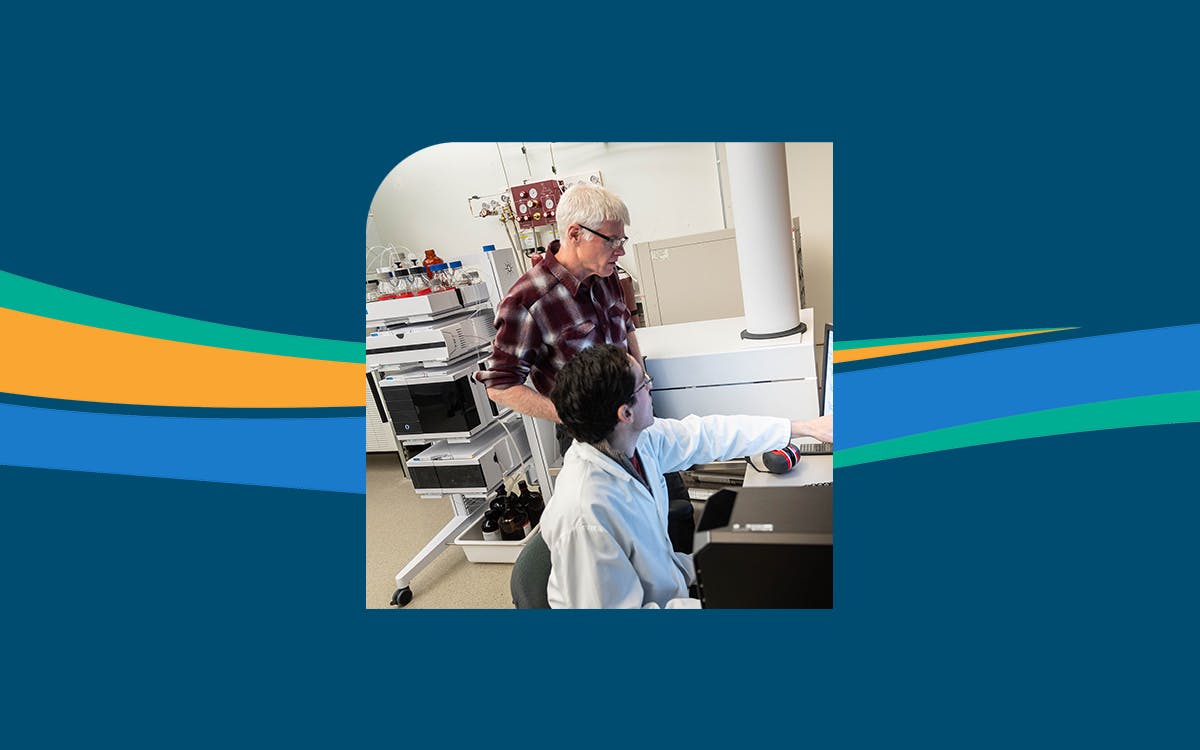
Dr. Lindsay Eltis is working to better understand an important CF pathogen
Lindsay Eltis is a professor and researcher at The University of British Columbia who was recently funded by Cystic Fibrosis Canada for his study, Targeting steroid catabolism in mycobacterium abscessus for novel therapeutics. Cystic Fibrosis Canada partnered with the Cystic Fibrosis Trust in the UK to fund this award.

Dr. Xiaojie Luan explores the roots of cystic fibrosis lung disease
Dr. Xiaojie Luan is a Post Doctoral Fellow in the department of anatomy, physiology, and pharmacology at the University of Saskatchewan. Dr. Luan was recently awarded a research fellowship from Cystic Fibrosis Canada to pursue his research study; Origins of cystic fibrosis lung disease: miscoordination among ionocytes, secretory cells and airway submucosal glands.

The theratyping revolution: How Dr. Theo Moraes is transforming CF care
Dr. Theo Moraes, a researcher at The Hospital for Sick Children, stands at the forefront of cystic fibrosis (CF) research. His groundbreaking contributions to the field, particularly his recent project that received the highest score from community reviewers in our grant competition, have earned him the prestigious 2024 Cathleen Morrison Research Impact Award.

Dr. Igor Stagljar on dynamic interactions and mutant proteins
Dr. Igor Stagljar, professor and researcher at the University of Toronto, has recently been funded by Cystic Fibrosis Canada for his study, Large-scale exploration and functional validation of the dynamic interactions of CFTR WT and mutant proteins with solute carrier proteins.

Dr. Valerie Waters on PA and SA co-infections
Dr. Valerie Waters is a professor of pediatrics at the University of Toronto and a physician in the Department of Infectious Disease at SickKids. Dr. Waters was recently funded by Cystic Fibrosis Canada for her study; Pseudomonas aeruginosa and staphylococcus aureus interactions and antimicrobial tolerance in patients with cystic fibrosis. Her work will focus on the co-infections of these bacteria, driving the path for more effective treatments. Learn more about Dr. Waters’ contribution to CF research.

Dr Lisa Strug - Unravelling genetic contributors to CF-related conditions
Dr. Lisa Strug is a professor at the University of Toronto and Senior Scientist at The Hospital for Sick Children, focusing on genetics and genome biology. Dr. Strug and her team are investigating various genes that may play a role in the development of cystic fibrosis (CF)-related conditions and may hold potential to produce an alternative target for therapies. Read more about Dr. Strug’s research and contribution to cystic fibrosis.

Cystic Fibrosis Canada celebrates 60 years
Hear from a few members of the cystic fibrosis community on the advice they would share with future generations of people affected by CF.

Dr. Christine Bear's impact on personalized CF therapies
Dr. Christine Bear, a biomedical researcher at SickKids Hospital in Toronto and a Professor at the University, focuses on understanding the genetic disease cystic fibrosis (CF) and developing strategies for targeted therapeutics.

Dr. Tanja Gonska interrogates causes for gastro symptoms
Dr. Gonska's latest research project, titled "Interrogating the Causes for Persisting Gastrointestinal (GI) Symptoms in People with CF on Treatment with High-Efficiency CFTR Modulators (HEMT)," aims to improve gastrointestinal pain management for cystic fibrosis patients and recently received funding from Cystic Fibrosis Canada.

Discover Key Insights from the 2024 NACFC
Join Kelly Grover, President and CEO of Cystic Fibrosis Canada, as she shares highlights from the 2024 North American Cystic Fibrosis Conference.

Ena Gaudet Nurse Coordinator
Profile of Eda Gaudet, Nurse Coordinator at Adult Cystic Fibrosis Clinic at Ottawa General Hospital

Dr. Heather Switzer, Child Psychologist
Profile of Dr. Heather Switzer, Child Psychologist at Regina General Hospital, Saskatchewan

Grant Hoffert, Nurse Coordinator
Profile of Grant Hoffert, Nurse Coordinator at Victoria Adult Cystic Fibrosis Clinic

Paula Barrett, Pediatric Cystic Fibrosis Nurse Coordinator
Profile of Paula Barrett, Pediatric Cystic Fibrosis Nurse Coordinator at IWK Health Centre in Halifax, Nova Scotia

Brent West and Eva Leek, Respiratory Therapists
Profile of Brent West and Eva Leek, Respiratory Therapists, St. Michael’s Hospital, Toronto

Ève Routhier, Clinical nurse
Profile of Ève Routhier, Clinical nurse

Julian Tam. Respirologist
Profile of Julian Tam. Respirologist at Saskatoon Adult Cystic Fibrosis Clinic

Stephanie Spencer, Physiotherapist
Profile of Stephanie Spencer, Physiotherapist at Health Science Centre in St John’s, NFL
Beyond lungs: Exploring CF's unseen impacts with Dr. Valerie Chappe
Dr. Valerie Chappe at Dalhousie University is advancing research on cystic fibrosis and its complications, particularly cystic fibrosis-related diabetes (CFRD).

Help us reach those left behind
Many living with cystic fibrosis still lack effective treatments. Support Cystic Fibrosis Canada's gene therapy research and help us fund critical clinical trials by October 14.

Creating a future W/O Limits
Lina Bhardwaj shares her daughter Rianna's journey with cystic fibrosis, highlighting the need for $40,000 by October 14 to fund critical research for new treatments.

This year, we’re dreaming bigger
Thanks to our community, people with CF are living a decade longer. Help us raise $40,000 by October 14 for groundbreaking research to transform lives.

60 Years of Partnership with Kin Canada
In August, Cystic Fibrosis Canada and Kin Canada celebrated their 60-year partnership at the annual Kin Canada Convention in Charlottetown, PEI.

Camp Fromaway 2024
This July, Camp Fromaway brought together youth aged 11-17 living with cystic fibrosis for a virtual camp filled with fun, friendships, and personal growth activities.

September 2024 CEO Community Update
At Cystic Fibrosis Canada, summer reflection fuels our fall plans to celebrate, connect, and advocate for the CF community. Read on for updates and to learn how you can continue to support Cystic Fibrosis Canada.

Christina’s Summer at Cystic Fibrosis Canada
Christina Robert joined CF Canada as a 2024 summer student, contributing to impactful projects and gaining valuable insights into cystic fibrosis and advocacy work.

My Unforgettable Journey in Morocco
CF Canada’s Worldwide Trek to Morocco was life-changing, building community, raising funds, and bringing trekkers together in a mission to fight cystic fibrosis.
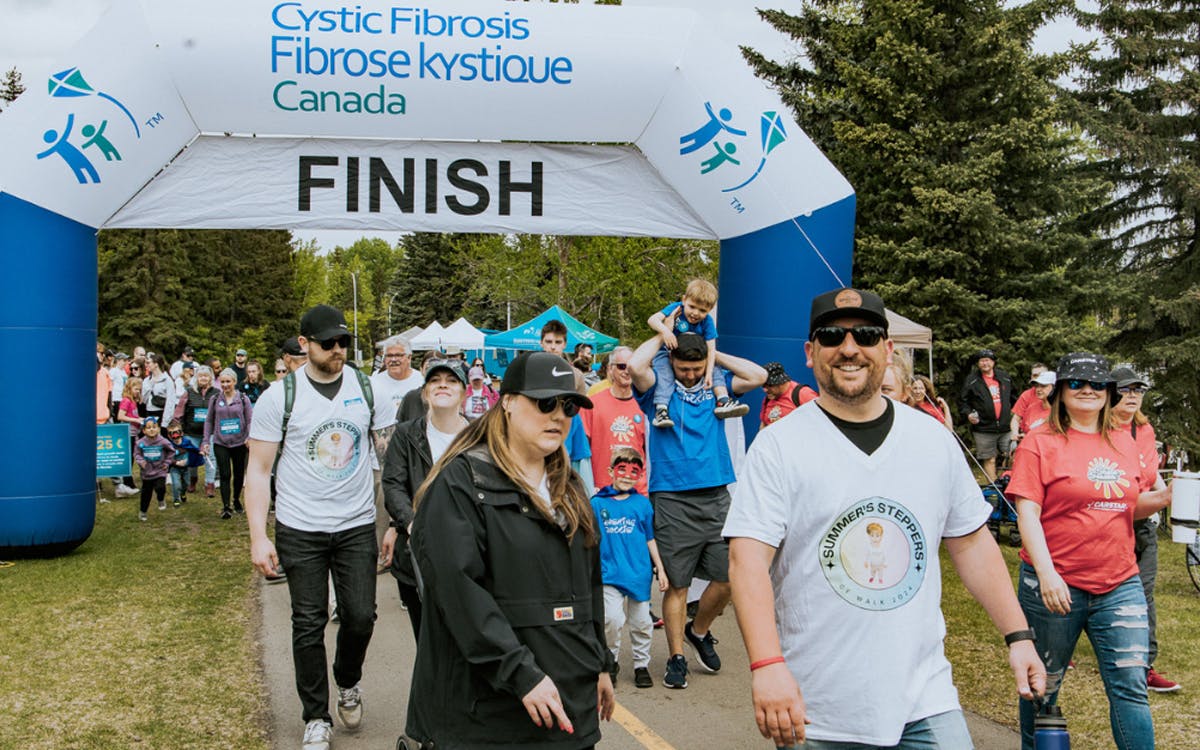
We Made a #StepToward Treatments for All
On May 26, thousands across 40+ Canadian locations joined the 20th Walk to Make Cystic Fibrosis History, raising $2.2M+ and taking a #StepToward treatments for all.

CF champion Mr. Saskatchewan turns 100
Frank Leier, or Mr. Saskatchewan, as he has been dubbed by Doug Summerhayes, the founder of what is now Cystic Fibrosis Canada, just turned 100!

Decant Gala 2024: Celebrating a Decade of Success
On Saturday, May 11, 2024, the Decant Gala celebrated a decade of making a difference at the tenth annual gala in support of Cystic Fibrosis Canada.

A Story of Hope: A Tribute to Jean-Sébastien
Pier-Olivier Cabana, shares his story of Jean-Sébastien, a beacon of light in his life. He honours him this year at The Walk to Make Cystic Fibrosis History.

Dominique Babin’s Story
I'm Dominique Babin, a lawyer and mother, participating in the Ironman 70.3 Mont-Tremblant to support my niece Alexie, who bravely battles cystic fibrosis. Join me in raising awareness.

A Step Toward A Brighter Future
As the mother of a child with cystic fibrosis (CF), I've learned that hope is a powerful force. It's what drives us forward, pushing us to go further for everyone living with this relentless disease. Today, I want to share our story — a story of struggle, resilience, and a plea for your support in making a life without CF a reality, not just a distant dream.

From an Early Age: Pediatric Modulator Trial
Ashley eagerly joined a Vancouver trial for her daughter Cali's cystic fibrosis, learning about new treatments. This journey began two years earlier with a CF diagnosis.

The Watson Sisters’ Journey with CF
My sister, Allison, and I share our cystic fibrosis journey, highlighting the challenges and bond we've formed. From childhood to adulthood, we’ve faced CF together, advocating for research and dreaming of a cure.

Stepping Together for Our Son
Our 9-year-old son, Loïc, faces daily challenges with cystic fibrosis. Join us on May 26 at the Walk To Make CF History, advocating for treatments and a brighter future.

A Father’s Vision for a CF-Free World
As a father, my journey with my son Andre, who has cystic fibrosis, is filled with fear, love, and hope. Join us on May 26 at the Walk To Make CF History and support vital research and treatments.

No More Missed Moments
Lauren Anderson is a 22-year-old living with cystic fibrosis (CF). Despite challenges, she pursues her dreams with optimism. Join her in the Walk To Make CF History on May 26!
James and Leroy: A journey of hope and advocacy in the face of cystic fibrosis
James Fournier’s son, Leroy, was diagnosed with cystic fibrosis at birth. Despite challenges, Leroy’s strength drives James to advocate for CF research and support.

A Life-Changing Referral
Isaiah travels from Edmonton to Vancouver every two months for a CF antibiotic study, feeling honored to contribute to CF research and the community.

2022-24 Research Impact Report
Our research investments, enabled by donor generosity, have led to breakthroughs in cystic fibrosis treatment and understanding, bringing us closer to a cure. View the 2022-24 Research Impact Report here.

Shineranama Celebrates 59 Years
Thousands of post-secondary students across Canada banded together this Shinetember to raise essential funds for cystic fibrosis research, care, and advocacy. Find out more!

Shift in Newborn CF Treatment
Health Canada has approved the cystic fibrosis drug Kalydeco for children aged 2-4 months with specific CFTR gene mutations, marking a shift in early CF treatment.

NACFC 2023: Cystic Fibrosis Is in a State of Change
Cystic Fibrosis Canada attended NACFC 2023, focusing on new developments in CF research and care. The key theme: CF is evolving, and new approaches are needed.

Tirabassi Family Journey with CF
As a mother of a child with cystic fibrosis (CF), I've learned that hope drives us forward. Today, I share our story of struggle, resilience, and the fight for a life without CF.

Patricia’s Story
Patricia remembers her son MacKenzie for his kindness and wisdom, despite his painful CF struggles. Her deepest hope is a future where every Canadian with CF lives a full life.

Chanelle’s Journey with Cystic Fibrosis
Chanelle, a 25-year-old from Cornwall, Ontario, faced the challenge of losing her right lung to cystic fibrosis. Despite this, she finds joy in creativity and her dog, Everest.

Health Canada Approves Trikafta for Children Ages 2-5
Health Canada has approved Trikafta for children aged 2-5 with at least one F508del gene mutation, following earlier approval for those 6 and older.

Complexities of Aging with CF
Cystic Fibrosis Canada hosted a webinar with Dr. Anne Stephenson on her study "Getting Older & Wiser: the Complexities of Aging with CF," exploring changing demographics and emerging conditions.

A Mother’s Worry
The September Challenge is vital, aiming for a future without this disease. Help us meet the goal by the deadline to fund a research lab until the end of the year!

Brind ‘Amour Nugent-Hopkins CF Golf Classic
In June, over 400 supporters, including 144 golfers, celebrated the 25th Rod Brind’Amour/Ryan Nugent-Hopkins CF Golf Classic, raising a record-breaking $175,000 for Cystic Fibrosis Canada.

Nutrition and CFTR Modulators
Struggling to balance nutrition with a new CFTR modulator? Our tip sheet offers guidance on fueling your body and pairing foods with your medication.

Meet the Team – Rachel Syme, Program Director, Research
Meet Rachel Syme, the new Program Director, Research at Cystic Fibrosis Canada.

Trikafta Update for 2-5-year-olds
Last month, Cystic Fibrosis Canada’s National Advocacy Briefing covered Trikafta access for 2–5-year-olds, rare mutations, and Canada’s rare disease drug strategy.

Hilary’s Story: Raising Hope for a Life Without CF
Hi, I’m Hilary Becker. Discover my journey with cystic fibrosis, the transformative impact of Trikafta, and my dedication to CF research and advocacy.

Émerick’s Story: A Family’s Hope for a Life Without CF
I’m Virginie, mom to Émerick, a bright 7-year-old with CF. Despite the challenges, we cherish our time together and advocate for a future without CF.

European CF Society Conference
Dr. Paul Eckford, Cystic Fibrosis Canada’s Chief Scientific Officer, attended the European CF Society’s 2023 conference. Key discussions included the impact of CFTR modulators and the evolving needs of CF care.

Canadian CF Researchers Head to Croatia
The world of cystic fibrosis research is full of promise, with much happening in Canada. Cystic Fibrosis Canada awarded travel grants to two researchers to attend the European CF Society’s Basic Science Conference in Croatia.

Vicky and Sebastian
Sebastian’s CF story began with missed diagnosis opportunities. Diagnosed at nine months with rare mutations, his case highlights gaps in newborn screening, especially for racialized people.

Meet Annie
When my son was diagnosed with CF 16 years ago, we felt isolated. Through the Elevate program, we found our place in the CF community, sharing our story and engaging with others. Join Elevate today.

2023 Broken Arrow Conference
At Cystic Fibrosis Canada's Broken Arrow conference, researchers focused on improving detection and treatment of airway infections, a top priority for the CF community.

Cystic Fibrosis Canada’s 2023 Annual General Meeting
Cystic Fibrosis Canada held its Annual General Meeting on April 28, 2023, to reflect on the past year and review the financial report. Watch remarks from President and CEO Kelly Grover and Board Chair Leona Pinsky.

My Whole Life Changed
Despite his cystic fibrosis, Roger lives an active life in New Brunswick and participated in a life-changing clinical trial for a new CF modulator drug. His experience highlights the importance of CF research and patient support.

2023 New CF Canada Board Members
Cystic Fibrosis Canada welcomes four new directors to the board and a new chair, Barbara Hill. Meet the new directors, John Bennett, Karen Corraini, Aleka MacLellan, and Tim Trussell.

Saying Farewell to Three Inspiring Board Members
Leona Pinsky, Ian Thompson and Stuart Hodge have been dedicated members of our board and community for decades and their terms have recently come to an end.

Thank You to Our Volunteers
Time is precious, and your volunteer efforts are invaluable. During National Volunteer Week, we celebrate your dedication to the CF community. Thank you for making a difference!

Sandra’s Story
At 36, Sandra reflects on her journey with CF, from a life-threatening decline to a transformative double lung transplant, and the challenges of family planning.

Sleep and Mental Health in Young Adults with CF
New study by the Canadian Lung Association and Cystic Fibrosis Canada explores the impact of sleep and mental health on young adults with CF, aiming to enhance well-being.

The Advocacy Brief – Issue #17
Welcome to your February 23, 2023 edition of The Advocacy Brief.

How One Family’s Fear Turned Into Hope for the Future
A Manitoba family turned fear into hope after their son Wyatt was diagnosed with cystic fibrosis. Trikafta transformed his life, giving them a brighter outlook for the future.

A Conversation About Cystic Fibrosis and Mental Health
Mental health is crucial for those with CF and their families. Anxiety and depression rates are higher in CF patients and caregivers. Find out more.

Rachel's Story
Rachel Miller talks about her three children with CF and her hope that more families can reap the benefits of medications being developed to help those with CF.
